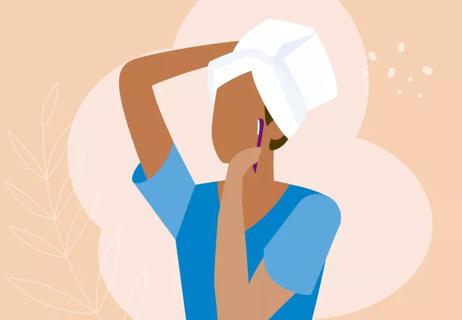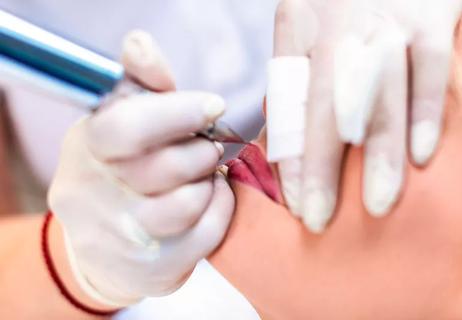How easy is it to get rid of a tattoo?
So the event you commemorated with a tattoo is something you’d rather not remember. Or the tattoo you got in your 20s no longer reflects the real you.
Advertisement
Cleveland Clinic is a non-profit academic medical center. Advertising on our site helps support our mission. We do not endorse non-Cleveland Clinic products or services. Policy
But how easy is it to get rid of your tat?
Dermatologist Alok Vij, MD, says that today’s laser technology makes it possible to eliminate or fade most tattoos — but not all. In the past, tattoos were surgically shaved, scraped, frozen off or peeled away with chemicals. “Frequently, this left an undesirable scar,” notes Dr. Vij.
In the 1980s, “Q-switched” nanosecond lasers emerged, offering better results. Their tiny pulses of high-powered energy remove or fade most colors, with little risk of skin damage. Newer picosecond lasers show promise for more rapid tattoo removal in fewer treatments. A series of laser treatments, four to eight weeks apart, is usually required.
Before scheduling an appointment, consider these tips:
It’s important to set your expectations by speaking with a laser treatment expert. Some tattoos fade only partially after these treatments.
How long ago did you get your tattoo? The answer makes a difference. Older tattoos fade generally more easily with laser treatments than newer ones.
If laser removal uncovers skin changes, you may be left with what looks like a “ghost” of your old tattoo.
Where did you get your tattoo? Fading is generally slower for tattoos located further down the arm or leg.
Advertisement
Amateur tattoos are usually easier to remove than professional tattoos.
No single laser can remove all tattoo colors. Different dyes respond to different light wavelengths. Black and dark green are the easiest colors to remove; yellow, purple, turquoise and fluorescent dyes are hardest to fade.
Tattooing itself may scar or change skin texture, an effect often hidden by the dyes. If laser removal uncovers skin changes, you may be left with what looks like a “ghost” of your old tattoo.
Laser treatments may darken or lighten skin pigment over and around the tattoo. Apply sunscreen before and after laser tattoo removal to minimize changes in your skin pigment. For the same reason, wait for your tan to fade before having a tattoo removed.
Certain cosmetic tattoos, such as pink, white and flesh-colored lip liners, may darken immediately with laser therapy. This effect can usually be corrected with further treatment. If immediate skin darkening is a concern, the laser should be tested on a small spot first.
If you experienced an allergic reaction when getting your tattoo — intense itching and swelling — tell your doctor. Using a “Q-switched” laser to remove the tattoo may trigger a more serious allergic reaction.
Finally, before getting more body art, remember that it’s meant to be permanent. “Make sure the tattoo you get is one you won’t mind having later in life,” says Dr. Vij.
Advertisement
Learn more about our editorial process.
Advertisement

Do a test area first to see how your skin reacts

Shaving your face can actually give you smoother skin

The semi-permanent tattoo can enhance your lip color and give the illusion of fullness

What you need to know about micropigmentation straight from a cosmetic dermatologist

Bathing once a day is the general guidance, but you could also have reasons to soap up twice a day or not at all
There’s not one specific cure-all diet for eczema, but it helps to keep track of what you eat and when you experience symptoms

It’s best to avoid picking at zits, which can damage your skin (though there are ways to minimize the risk)

Both inflammatory conditions have varying triggers and symptoms

Start having sex about 72 hours before ovulation, then at least every other day during your fertile window

Attachment theory suggests that your earliest relationships shape connections throughout your life

It isn’t a recognized mental health disorder, but research shows that problematic social media use can negatively affect your mental health, self-esteem and sleep